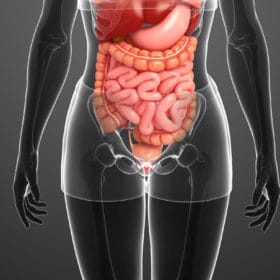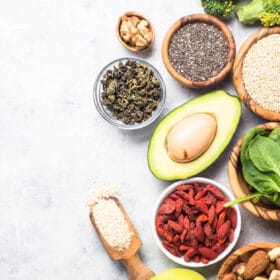Many athletes often attribute their poor training performance to overtraining, which can lead to a drop in performance and signs of fatigue. However, poor training performance can actually also be caused by Iron deficiency in the body. Iron is one of the essential trace elements that the body cannot produce itself. Iron is also important for the formation of hemoglobin. The daily loss of the trace element iron is around one to two milligrams, but it can be replenished through food. According to a study by the Centers for Disease Control and Prevention, as many as nine percent of all women between the ages of 20 and 49 suffer from iron deficiency. It is now believed that around two billion people worldwide suffer from an iron deficiency. Women in particular suffer from a lack of this trace element. According to a study published in the Journal of Internal Medicine, around 56 percent of 113 male and female endurance athletes suffered from an iron deficiency. The reason for this deficiency in the women was due to increased iron loss during menstruation and in the men due to hard and intensive cardio training. A diet without meat and fish products can also lead to a considerable iron deficiency. Other reasons for iron loss include heavy menstrual bleeding, bleeding due to ulcers or chronic inflammation in the gastrointestinal tract and heavily bleeding haemorrhoids. The loss of minerals and trace elements in the body via the kidneys and sweat on the skin increases during high levels of sporting and very intensive physical exertion.
What to do about iron deficiency?
If you feel tired all the time and your physical performance has deteriorated significantly, you can have a simple blood test carried out by your GP to find out how high your iron levels currently are. Nevertheless, you should definitely wait to take supplements until you are absolutely sure that you have a long-term iron deficiency. The pain threshold for supplementation is around 40 milligrams of iron per day. Anything above this can lead to side effects and damage to your health. If you actually suffer from an iron deficiency, you have various options to compensate for it. For example, you can eat more iron-rich foods or take a supplement that contains a particularly high amount of the trace element iron. As an iron deficiency cannot be compensated for with food, especially during a diet, you should generally resort to certain iron supplements. However, your GP should definitely adjust the dosage to your individual requirements, as every woman or man has an individual need for this trace element. An iron deficiency cannot be corrected overnight. According to a study by Mc Clung, it took eight weeks of supplementation with iron supplements to stabilize iron levels in 219 women, despite intensive cardio training. However, it can also take several months before the iron deficiency detected can be corrected. Another benefit of corrected iron levels is improved performance, which can lead to a more efficient training level. An iron deficiency also has consequences for training intensities and training programs. HIIT and excessive cardio training should definitely be avoided until the iron deficiency has been corrected. It is important to take high-quality iron preparations or supplements that can replenish low iron stores in the long term.
Five tips on how to replenish your iron stores with the right food
Iron supplements cannot replace the trace element iron in high-quality foods. Laboratory-produced iron supplements offer a different quality than, for example, the trace element iron from a juicy steak.
Below we have published five tips that can improve your iron intake with different foods:
1. your body absorbs iron from red meat, fish or poultry two to three times more efficiently than from other iron-rich foods.
2. consume iron-rich foods together with vitamin C-rich foods such as oranges with cereal products or red peppers with poultry, as these combinations can lead to increased absorption of iron.
3. cooking food in cast iron pots can significantly increase the absorption of iron.
4. avoid drinking coffee or tea with meals, as these drinks can prevent or hinder the absorption of iron. Therefore, always drink your coffee between meals.
5. foods rich in calcium such as yoghurt, milk or other products should not be eaten together with iron-rich foods.




